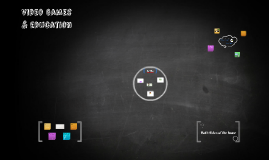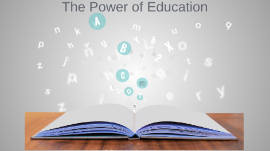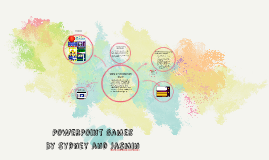Video Games for education
Transcript: See thing's you may not be able to experience in a classroom Countless resources vs. paper materials Course material more interactive and memorable More opportunities for anti-social (shy) students Create self-dependent learners More student involvement Automates tedious tasks Provides a different form of education for different types of learner Contributes to making lessons more interesting for students Improves many cognitive process and vision "Recent surveys suggest that the average player voluntarily spends between ten and fifteen hours a week gaming (Rideout, Foehr, and Roberts 2010)." “Like all animals, humans are wired to perform those actions that result in some reward or fulfill some basic need. Indeed, behavioral research shows that games are capable of providing a variety of basic psychological needs. These include autonomy (the belief that one has control over his or her own actions and decisions), competence (the belief that one has the level of skill necessary to achieve goals), and relatedness (the feeling that one is socially connected with other human beings) (Przybylski, Rigby, and Ryan 2010).” "If individuals find a learning task too easy, they will not make enough errors to necessitate improvements" "Action video game training enhances several aspects of vision. One aspect involves contrast sensitivity, or the ability to detect small incremental changes in shades of gray. This ability is considered one of the primary building blocks of all vision." "The ability to select and manage multiple cognitive processes, such as attention, memory, and planning." “Children with dyslexia also seem to benefit from training on action video games. Although researchers typically consider dyslexia to be related exclusively to issues unique to language, recent studies suggest that, at least in some children, part of the deficits may involve visual attention.” Long term impact - financially.Some students have more access to technology. Not all students have the technology available to them outside of school Not enough funding for technology Easy to get off task on a computer. Allows for more distractions in the classroom. Some students are more prepared than others and instructors and professionals may lack knowledge No interaction with people or physical connection to the material. Limits physical interaction with material and classmates/teachers Reliability and credibility of many resources questionable and there are differing opinions on technology Inability to monitor all students' activity Overuse of technology can hinder students who learn better other ways Class time can be wasted over confusion or technological errors May not apply to all learning styles "Most teachers have no knowledge about how to teach with games" "teachers have difficulty finding an educational game suitable for a given learning objective" "Prolonged gaming can be detrimental to the vision of a player" "Students may lose desire to master basic concepts requiring sincere learning caused by the negative effects of teaching with games" "Gaming may result in excessive competition in the classroom" What games do you think are suitable for different age groups? Why do you think it is harder to find educational games for older students compared to younger? The main difference between tablets/iPads and computers: Touch input provides an alternative way to interact with video games. non-verbal exceptional learners younger students K-2 Grade 4 Mathematics General Outcome: To develop number sense Specific outcomes: 3. Demonstrate an understanding of addition of numbers with answers to 10 000 and their corresponding subtractions (limited to 3- and 4-digit numerals) by: • using personal strategies for adding and subtracting • estimating sums and differences • solving problems involving addition and subtraction. General Outcome: C6 Students will use technology to investigate and/or solve problems. Specific Outcome: 2.1 select and use technology to assist in problem solving General Outcome: 2 Students will listen, speak, read, write, view and represent to comprehend and respond personally and critically to oral, print and other media texts. Specific Outcome: 2.1 Use Strategies and Cues Use phonics and structural analysis General Outcome: F6 Students will demonstrate a basic understanding of the operating skills required in a variety of technologies. Specific Outcome: 1.1 perform basic computer operations, which may vary by environment, including powering up, inserting disks, moving the cursor, clicking on an icon, using pull-down menus, executing programs, saving files, retrieving files, printing, ejecting disks and powering down General Outcome: 2.2 Respond to Texts, 5.2 Work within a Group Specific Outcome: Appreciate the artistry of texts, Cooperate with others, Work in groups General Outcome: C6 Students will use technology to investigate and/or solve problems. Specific Outcome: 2.7 generate alternative solutions to problems by using

















